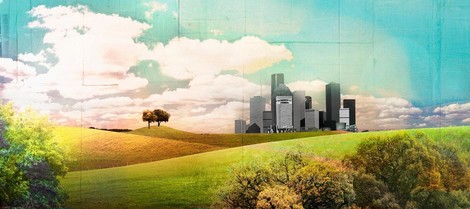Your podcast discovery platform
Curious minds select the most fascinating podcasts from around the world. Discover hand-piqd audio recommendations on your favorite topics.

piqer for: Globalization and politics Global finds
I am an Australian freelance journalist focussing on conflicts, politics, and warzones around the world. I have been working as a journalist for over 5 years, having reported from Australia, Germany, China, Egypt, Palestine, and Ukraine. I am especially interested in the way that new technologies are being used in conflict zones in unexpected and often disturbing ways. During my time working as a journalist, I also co-founded open-source war reporting site Conflict News.
It's Not Elites Vs. Populists. It's Cities Vs. The Countryside.
If you have done a large amount of traveling around the world, you begin to notice a curious phenomenon. From Europe to China, to Oceania and the Americas, while there are huge cultural differences, one thing is the same: the presence of the cities.
Urbanization is one of the defining trends of our time, and after visiting a large number of so-called 'world cities', they do, in a way, all seem to feel the same. The pace of life is faster, change is an ever present force, and ambition and optimism drive things forward. And while cities are open to the world and extoll the views of their 'winners', the 'losers' are never far out of sight.
But could the same be said for the non-urban areas? Do they share a similar dynamic? Do their hopes, dreams and life experiences coalesce behind a particular kind of worldview of their own?
In Damon Linker's article for The Week, he takes a look at these two different groups from a political perspective. He posits that the urban–rural divide might just be the most serious political fracture of our time. Using the examples of the US Presidential Election, Brexit and the Turkish Referendum, he shows how cities drive social progress and embrace change, while the countryside looks back to the past as a better time.
Such an analysis is critical in 2017, where rising reactionary movements threaten social, environmental, and economic progress throughout the world. Moreover, it forces the reader to ponder the question: Can these two groups be reconciled? Or will they forever be in political opposition?
